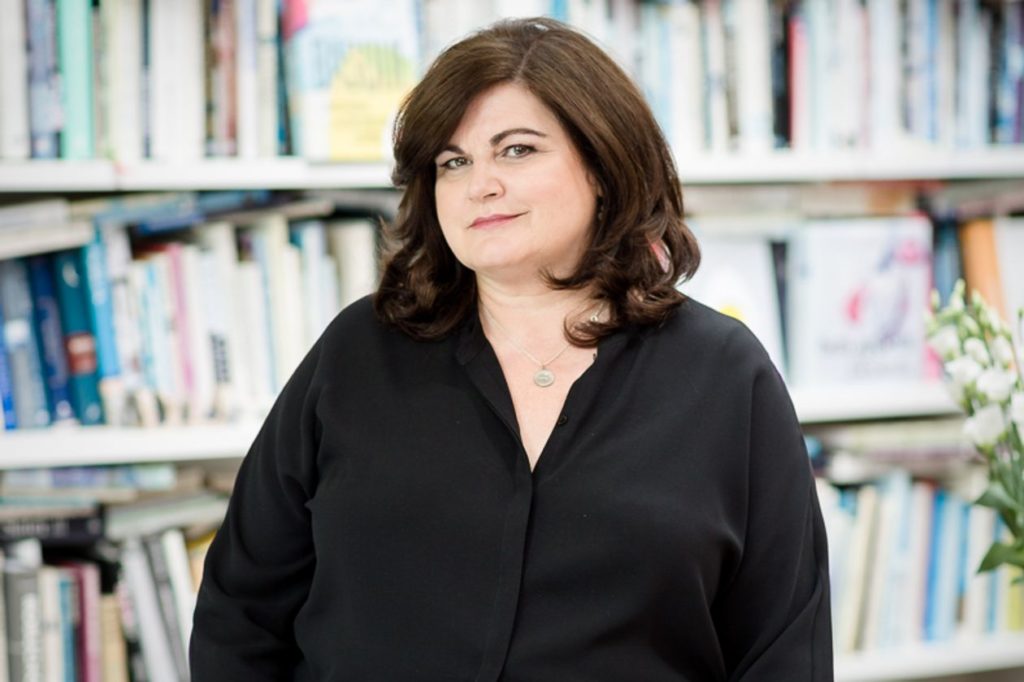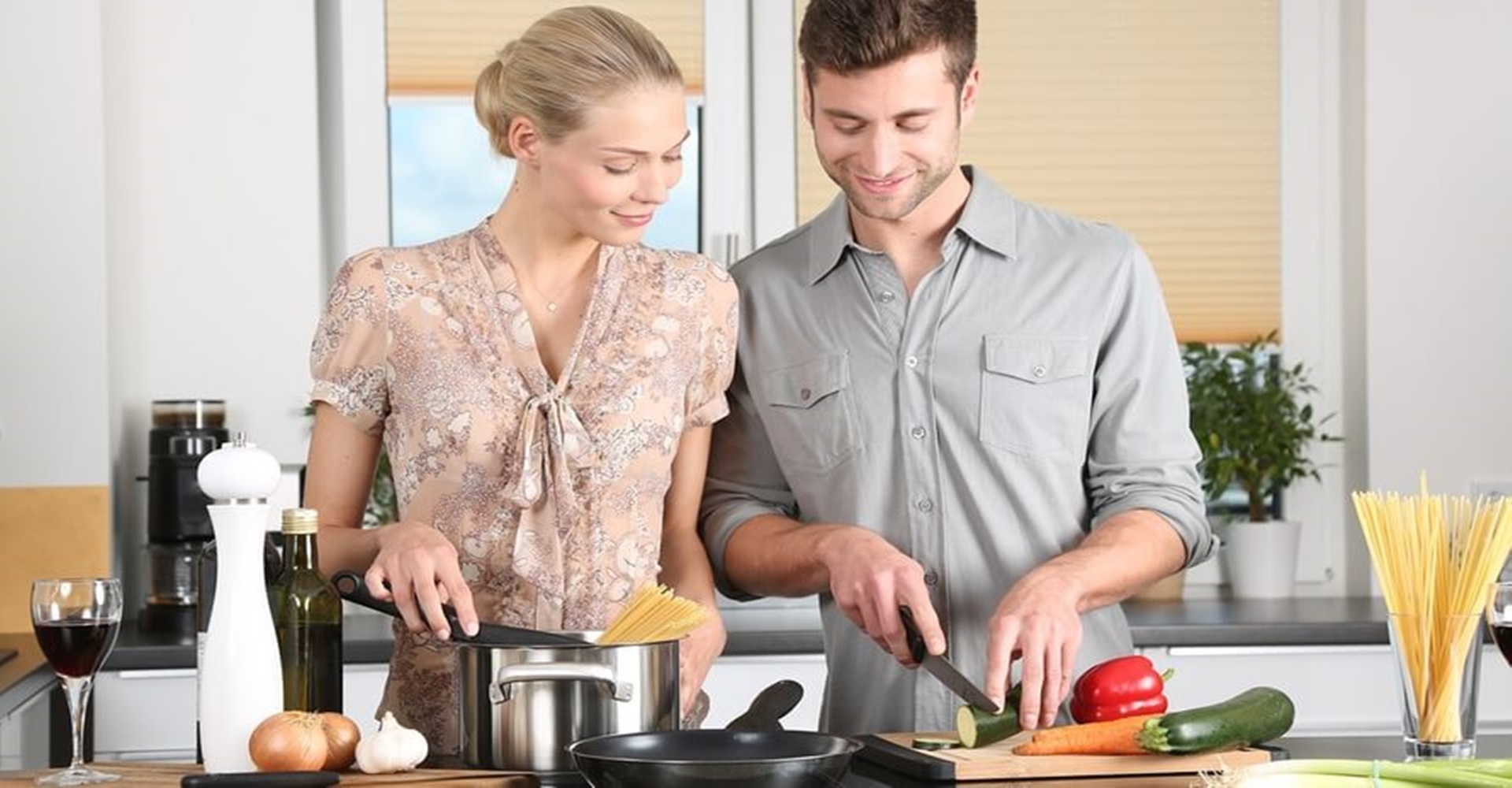Cookbook author and British mainstay Diana Henry on her new book, ‘From the Oven to the Table.’

At the beginning of a new year, it’s easy to think of all the ambitious ways we might become better cooks: start buying local, stock up on vegetables or finally master the French classics. But if you follow the advice of British cookbook author Diana Henry, the answer is a little bit simpler: just turn on your oven.
In her latest book, From the Oven to the Table, Henry celebrates the set-it-and-forget-it ease of sheet pan dinners and their brethren. This isn’t a utilitarian guide to roasted vegetables and chicken breasts that panders to listicle cuisine; it’s a look at what your cooking life could be—if you had a better-stocked pantry and a life’s worth of patina-laden serving dishes. The book’s photos are equal parts airy and homey, interspersed with photos of candlelit dinner parties in Henry’s London home.
Henry’s roasting tin dinners are sumptuous things on which to drizzle chutneys and relishes; meals you can close the oven door on before you open a bottle of wine. They aim to be the intersection of casual and elegant, that sweet spot where every home cook wants to live. WSJ. spoke to Henry about the beauty of the single pan and how to better stock your pantry for brilliant weeknights.
You mention in the book’s introduction that you fell in love with this sort of recipe when you discovered a recipe for chicken thighs with potatoes in an Antonio Carluccio book—how did that change the way that you cooked?
When I found that dish, I had just had my first baby and it was like, this is the kind of food that I need to be cooking. And then I just kept doing variations on that. I cooked everything in roasting tins—we don’t have sheet pans here like you do, though I wish we had them.
I think quite a lot of people don’t use the oven; they’re mostly on the hob [stovetop]. But when you have a little baby and it cries all the time…I just couldn’t do that. I started doing an awful lot of roasting, because it meant you could close the door and just get on with things. And I had a bunch of ideas for, like, “chicken thighs plus.”
Sheet pan dinners have become such a huge phenomenon in the U.S. Do you think this trend comes from how easy the process is, or is there something more to it?
I’m surprised it hasn’t been [this popular] all along, because it’s such an obvious thing to do. Especially chicken sheet pans: chicken thighs are brilliant, and they always look good, because they have that burnished texture when you’ve finished them. It looks like you’ve made a roast dinner but you haven’t done more than shove things in the oven, as long as you roast it well and you’ve oiled it. It seems like a more complicated thing than it is.
You dedicate a whole chapter of the book to them.
You’d think I’d be bored of chicken thighs by now, and I’m not! I keep thinking of things to do with them. The meat is so succulent, and if you leave [it] on you’ve got crispy, salty skin. And you’ve got all the other things around it. So as long as I can keep coming up with ideas, I will keep cooking them.
I’m slightly worried—I hope people don’t stop doing braises and things like that. I don’t want everything to be sheet pans! I’m still on for boeuf bourguignon, but I keep those things for the weekend. Brining is a pain in the ass! Honestly. I thought before I became a mum that I was going to be making pies, and lovely casseroles and things. But then I thought, now I’ve got to brine the meat, and then I’ve got to take them out, and then I’ve got to put the onions in, and I’ve got to brown them, and then I’ve got to put the beef back in—no! Not with babies, that’s not going to happen! That’s not realistic!
This is your 12th cookbook. Has your recipe development process changed since you started writing them?
Not really, I think. I do a mix of things. I travel quite a lot, so I pick up ideas while I’m away.. I can look at a menu at a restaurant and say, “Oh, I like the sound of that, but I wouldn’t do that with it.” People say, “How do you not run out of ideas?” But if you go anywhere, how can you not keep having ideas? Because they are kind of everywhere.
Food is about links, and contrast, and balance. All food writers like thinking about flavors, don’t they? Sometimes I can’t sleep at night because I’m thinking, you know, Oranges go with rosemary, and oranges go with rhubarb, so does rhubarb go with rosemary?
I’m not a chef, it’s not a knock-your-socks-off pairing, it’s not going to change the world. But for a home cook, I think those things are really lovely.
What are some of the dishes or some of the ingredients and flavors that do really well in this oven-to-table format?
This is somewhere where I have a problem. Because if people want to cook simple food, the only thing that’s going to make it interesting are the flavors they bring to it. And then people will kind complain, like, “You have to go out and do a whole shop, you have to have preserved lemons, you have to have fish sauce, you have to have soy sauce.” Well, you have to have bloody something, otherwise what you cook is going to be boring!
I do honestly think a full cupboard of things that will transform very simple ingredients is very important. So: preserved lemons. Fish sauce. Harissa. Soy sauce. A few different chili sauces. Pomegranate molasses. Nuts, as long as it’s not walnuts, because they go rancid very quickly. All of those kinds of things.
You know, I’ve got this larder that you kind of stand in, it’s a little old fashioned. Sometimes you can just stand there and just look at what’s on your shelves, and you will get ideas for dinner. So I do think that you have to be prepared to build a bit of a cupboard together to cook successfully this way.
wsj.com / balkantimes.press
Napomena o autorskim pravima: Dozvoljeno preuzimanje sadržaja isključivo uz navođenje linka prema stranici našeg portala sa koje je sadržaj preuzet. Stavovi izraženi u ovom tekstu autorovi su i ne odražavaju nužno uredničku politiku The Balkantimes Press.
Copyright Notice: It is allowed to download the content only by providing a link to the page of our portal from which the content was downloaded. The views expressed in this text are those of the authors and do not necessarily reflect the editorial policies of The Balkantimes Press.

